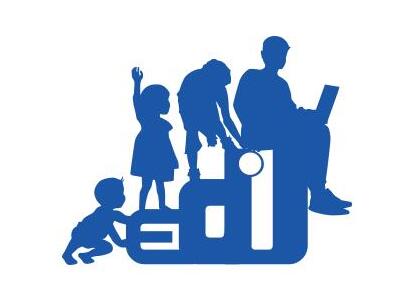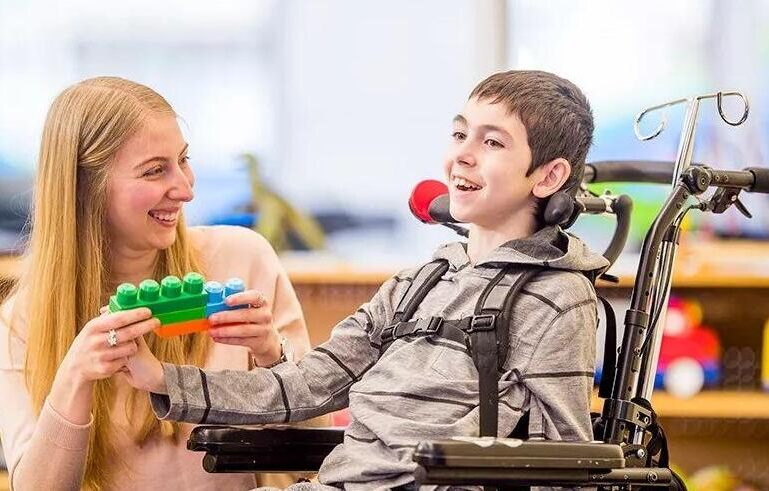Parental Involvement in Education Politics and Policy
Date
Institution
Parental Involvement in Education Politics and Policy
Education Policy代写 Introduction:The paper aims to review articles on the parental involvement in education politics and policies.
Introduction
It is at the heart of every parent to see his/her child do well in school, both in class and in other co-curricular activities. Child welfare at school is the main reason why some parents involve themselves or feel the need to become part of the education politics that take place in school (Goodall & Montgomery 2013). There are several ways for parents to involve themselves in school politics. Including attending meetings and discussions on the welfare of the students and conducting fundraisings. Whenever the school needs a building, or equipment, or even transportation. They also involve themselves by participation in elections when it comes to the decision making of important school matters among other things.
On the other hand, parents with disabled children often encounter challenges in responding to the special education system requirements (Taderera, & Hall, 2017).
The reason being most of them are not equipped with the necessary training in handling these children. As such their responsibility for following applicable special education regulations is a significant problem. The repercussions of the lack of parental involvement are evident in American society (LaRocque, Kleiman & Darling, 2011). Metric used to analyze post-high school success among the disabled students shows that the majority of them are finding it difficult to get jobs (Bilal, 2015). This implies that parents are not fully included in the provision of special education to these students. Education Policy代写
As it can be seen in various case studies when parents involve themselves in the provisions. And empowerment of the special education process more favorable results are achieved (Bilal, 2015). This observation underscores the importance of parent involvement in the provision and empowerment of the special education process. Since parents know their children better than educators, they will be in a position of assisting teachers in handling disabled students. However, it would be correct to argue that despite the government aim to include parents in the provision and enforcement of special education; the entire system is not supportive.
The paper aims to review articles on the parental involvement in education politics and policies. The point of this review is to show whether it is vital for parents to involve themselves with school politics. Whether it is beneficial for the students or not. Also, on the issue of parental involvement policy. The paper will review the various research and opinions on the special education.
Literature Review Education Policy代写
Education Politics
In their research, Hornby and Lafaele (2011), demonstrated a model of barriers in the four areas of parental involvement. According to the authors, there are several reasons in each of the four areas, why there are barriers to active parental involvement in education politics. The writers suggest that the first area is on parents themselves. Some parents are hesitant to involve themselves with education politics because of their beliefs, lifestyles, and other issues like gender, race, and ethnic background (2011).
For example, it is difficult for a parent from the minority group to take part in the parental involvement of a school that is dominantly white children and parents. Some parents might lack fluency in English, other may lack proper orientation with the school. While others may shy off for the fears that they might not be appreciated. Notably, the dominance also carries the weight of influence on opinions regarding the opinions made. Further, parents who have children under scholarship are also likely to avoid too much involvement in education politics.
Additionally, the article also focuses on the students. Education Policy代写
Some parents will have difficulty involving themselves with education politics because of their children and the factors surrounding them (Hornby & Lafaele, 2011). A child who has special needs will likely have parents who are very involved in their progress than a child who is normal and performs well. The reason being, as the authors state, some parents lack interests for involvement as long as the child is doing well in school. Others do not get involved because of ignorance. The age of a student also determines the level of involvement the parents will have in education politics. Behavioral problems of a student, the talents they pose, and the interest they show in specific areas will determine whether a parent will feel the need to involve themselves (2011). They will cause either more interest or lack thereof.
Hornby & Lafaele (2011) present another barrier for parents when it comes to their involvement in school is with regards to the kind of relationship that they have with the teachers of their children. Some teachers ensure that the parents are a big part of what is happening in school because it is beneficial to the students. The last area under discussion that leads to barriers to parental involvement is societal factors. These include political factors, economic factors, historical factors, and even demographical factors. They argue it is vital for parents to engage in education politics, but there are barriers, and these are the issues under discussion in this article (2011).

According to Goodall and Montgomery (2014), there is a connection between parental involvements with the schools, and how parents engage with their child’s learning progress.
They termed the involvement as a continuous process. Parents, who are active when it comes to their involvement in education politics, are ultimately just as active when it comes to engaging with their children concerning their education. It is therefore crucial for parents to involve themselves in education politics because they will equally involve engaging with their children (2014). According to different researches, people understand parental involvement differently.
Some parents involve themselves through baking cookies, others couch the teams, and others consider attending meetings as parental involvement. The authors show how parental involvement and parental engagement relate to each other (Goodall & Montgomery, 2014). Parents that engage themselves with the education of their children are more likely to involve themselves with the schools as well. The authors do not only explain the relationship between parental involvement and parental engagement but are also uses a diagram to show the process of how parental engagement evolves to parental involvement in schools.
Research by Jeynes, (2012), focused on parental involvement in school activities. Education Policy代写
The author examines and explains the relationship or the level of involvement parents engage in, depending on the age or the level of education of their children. He further explains parental involvement and the achievements of children go hand in hand. Schools, where parents are overly invested, tend to perform very well because they ‘fight’ for the needs of the children. This fact applies to all levels of education (2012).
Also, in schools where the parents do not take part in any decision making or are not keen to ensure that the students are in a safe and conducive environment, they tend to portray bad academic results (Jeynes, 2012). Different parental programs work depending on the level of education of the student. The author analyzes 51 research that shows the link between parental participation and how it contributes to academic achievement for the students. The results show that parents must actively take part in education politics if they want their children to have exceptional achievements academically.
Parental involvement is essential but varies depending on how dominant the parent becomes. Education Policy代写
Some approaches tend to restrict or limit parental involvement in schools, and it has advantages and disadvantages as well (Baquedano-López, Alexander & Hernández, 2013). One of the disadvantages of these approaches is the fact that some parents can help shape their children and other children as well, in one way or the other. However, such restrictions make it impossible for them to achieve this goal. The authors focus on the importance of having the goals of the school and parents intertwine because then they can work together as a team.
A student exists in three contexts, a family, a school, and a community (Baquedano-López, Alexander & Hernández, 2013). These three aspects need to have the same goals for them to work together for the benefit of the student. There are several ways for the parents and the community to engage in parental involvement when it comes to education policies. Some of the ways include organizing activities. That will benefit the schools and the students in one way or the other, engaging with the teachers when it comes to decision making. And even helping the students with their homework.
Similarly, Sarah and Snyder (2014), on their article, “Expanding role of philanthropy in education policy,” supports the issue of parental involvement in school politics.
This article focuses on the patterns in fifteen of the most prominent education foundations that exist. The writers conclude that schools work together with parents and the community. Like all the other articles in this review, it is evident that involving outside influence at schools. Especially the involvement of parents is essential for the growth and the success of a school or education facility. Children from schools where there is much parental involvement have a better chance of getting better grades and achieving their dreams (Reckhow & Snyder, 2014). Parental and community involvement also leads to the funding of projects and other financial issues that the schools may not be able to afford without the help of the community.
Education Policies Parental Involvement in Special Education Education Policy代写
Without parental involvement in the provision of special education, disabled students are more vulnerable to receiving limited services in the learning institutions. Before the implementation of the Individuals with Disabilities Improvement Education Act (IDEA), disabled students received inadequate services in schools (Vaughn, & Wanzek, 2014). However, with the implementation of the Act, it is a requirement of the law for all learners with disabilities to be provided with quality education (Burke, 2013). In this regard, the meaning of quality education according to Burke (2013), is that provide all the learners with all the capabilities they require to be economically productive, live a sustainable life, and contribute to the well-being of the society.
Disabled scholars are educated in an all-inclusive environment where they are taught in the same classroom with their classmates who are not disabled. According to the IDEA Act (2004), disabled students should be provided with an Individualized Educational Program (IEP). The program ensures such students are provided with services related to accommodations and modifications. Still, on this perspective, to ensure that the IDEA Act (Gartin, & Murdick, 2005) was active, legislators included parents in it. According to IDEA Act has given parents the responsibilities of attending IEP meeting and possess procedural safeguard. This implies that parents, educators, and learning institutions should cooperate to ensure disabled students receive adequate services.
For this reason, the stakeholders mentioned above have to work together to address the emerging issue in the care for disabled children. Education Policy代写
According to Burke (2013), the idea of parents being included in the IDEA Act means they have a significant role to play in the well-being of the disabled children. As mentioned earlier, parents are more knowledgeable in their children more than teachers (Bousted, 2009). Therefore, they have to collaborate with teachers to ensure that disabled students succeed in life. However, the following barriers hinder parents from total involvement in the particular program: ineffective procedural safeguards, little involvement in the program. And a feeling of being minor partners in the program (Burke, 2013). Statistics show that about 10% of the students can be classified with different disabilities.
Parents are the chief guardians of disabled students that why they are included in every aspect of their education process (Wogqoyi, 2013). Therefore, parents ought to be fully involved in the educational process of the disabled students as it is stipulated in the constitution. As it can be established that educators need parental knowledge in handling disabled students (Thatcher, 2012). However, parents are not competent enough to offer the assistance required by teachers.
For instance, they a parent cannot be able to teach them the skills like tailoring, knitting and more that require specialized training for interaction with disabled students. All the same, if the issue of involving parents in the special education process is a simple process, incidents of reluctance among guardians would not be common. According to Thatcher (2012), it is almost four decades down the line since the law was passed; however, the issue is still a significant problem in the society.
Based on the cultural capital knowledge, it is apparent that most of the affected parents are not knowledgeable about the special education procedures and law. Education Policy代写
Which affects their general involvement in the process. Correspondingly, based on the social capital, the relationship between the parents, educators and other experts does not favor parental involvements (Thatcher, 2012). The issue of parents not being conversant with the special education procedures and the law has been there for decades. As it can be noted from different IEP sessions, most parents are not involved in the decision-making processes. The decisions made in these panels are one-way since parents are not sufficiently involved in the provision of information pertaining performance of their children (Leiter, & Krauss, 2004). This could be attributed to incompetence in applying special school law and procedure.
Most parents of students with disabilities encounter challenges when it comes to the navigation of the special education program such as those requiring specialized skills like sign languages and knitting. Advocacy training does not offer clear directives to help parents on securing appropriate educational systems for their students (Lavretsky, 2004). Therefore, parents may be in need of competent promoters to claim their special education rights. Similarly, advocates also need to undertake training on special the law related to special education. This means that all the stakeholders in the entire system ought to be trained on the requirements of the Act.
As mentioned earlier, since the implementation of the Act (IDEA), the issue of special education has not been addressed adequately. This could be attributed to lack of adequate information on the involved stakeholders. Educator, parents and the law enforcers are not informed about the requirements of the Act. Parents being the most affected parties, they have neglected their responsibility in the entire process. According to Zaretsky (2004), the interaction between educators, parents and the involved parties is not conducive. The response to special education has been politicized.
Comparison

As it can be seen from the above case studies, the issue of parental participation in the special education program has been a significant problem in the society. Although the implementation of IDEA was intended to address the issue, the problem seems to get worse as the number of disabled people increases in the community. The problem is attributed to, amongst others, the existing skill gap that the parents need to get involved in special education. Burke (2013), cited the main obstacles affecting parental involvement as an ineffective program safeguards and little involvement of the parents in the program.
Zaretsky (2004) argues that the major barrier hindering parental involvement is the lack of clear advocacy directives. Parents are not aware of the special education law and procedure. The author still argues that advocates are not competent in the application of the special education laws. According to Burke (2013), parents are included in the IDEA Act since they are involved in almost the entire education process of their disabled students. However, due to the limitation of lack of information, they are not involved in decision making in IPE.
On the other hand, according to Thatcher, cultural and social capitals are the major causes of the lack of parental involvement (Leiter, & Krauss, 2004). The relationship between the parents, educators and the law enforcers does not support parental involvements. All, the same it would be correct to argue that even though parents assume a primary role in the provision and enforcement of special education various factors are limiting them.
Analysis Education Policy代写
Based on the evidence brought out in the above case studies, it would be correct to argue that the government is not involved in the application of IDEA entirely. Although legislators implemented the Act four decades ago, they did not elaborate clearly on how the objectives of the Act were being achieved (Thatcher, 2012). This is evident from the finding in Linda’s case study, whereby she observes that both parents. And law enforcers are not well informed on the requirements of the special education program law. Similarly, reluctance in parental involvement shows that parents are not equipped with the right knowledge; hence, they are incapable of taking up their position in the special education process.
For example, they cannot be able to participate in the assessment of their disabled child because they do not have the requisite skills to understand the process. Still, on this perspective, since this Act was implemented almost four decades ago, it means that some of the requirements in the Act are not applicable in the current situation. The number of disabled students at the time of the creation of the Act was low. Currently, almost 10% of the students have different disabilities (Leiter, & Krauss, 2004).
Therefore, the government should intervene and adjust the IDEA Act according to the needs of the society. Such changes should reflect the new development in information technology, social changes, and as well as other technological shifts. In this case, the needs of the society include educating parents on the requirements of the Act. The relationship between the concerned stakeholders should also be enhanced. It is evident from the above case studies that the relationship between the parents, educators and law enforcers does not support collaboration.
Conclusion Education Policy代写
Parental involvement in schools is vital for academic achievements. There are several types or levels of parental involvement, but they are all important to the children and their academic progress. These articles show the reasons why sometimes parents have a difficult time involving themselves with the politics of the school. They also show the different levels of involvement, therefore, those parents that are unable to participate fully in education politics, still have a way or two of getting to engage in parental involvement. It is evident that there is a strong correlation between parental participation and academic achievements.
Therefore, both the schools and the parents need to take extra steps to ensure that they work together for the benefit of the students. Some of the ways they can work together are through the schools involving the parents in decision making, carrying out volunteering events together. Helping the teachers through working with their children at home when they are doing homework. Monitoring the progress of the students at the school, among other things. However, all article shaves one common factor; parental involvement is important for the success of the children.
It would be correct to argue that parental involvement in the provision of the special education program is significant. However, since parents are not well educated on the requirements of the special education process, their involvement is limited. In most cases, parents of disabled students do not play an active role in the decision making of their children. They do not contribute much to the analysis of their kids’ performance. It has also been noted that advocates are not well informed on the applications of the special education law. This gap leaves parents in the dark end of addressing the issue; hence, their little involvement.
References Education Policy代写
Bilal A., D. (2015). The Impact of Parent Involvement Practices in Special Education Programs. Culminating Projects in Education Administration and Leadership. Retrieved fromhttps://repository.stcloudstate.edu/cgi/viewcontent.cgi?referer=https://www.google.com/&httpsredir=1&article=1010&context=edad_etds
Bousted, M. (2009). Mary Bousted: Don’t blame teachers when it’s parents who are failing. Retrieved from https://www.theguardian.com/commentisfree/2009/apr/05/children-social-skills-parenting
Burke, M. M. (2013). Improving parental involvement: Training special education advocates. Journal of Disability Policy Studies, 23(4), 225. DOI: http://dx.doi.org/10.1177/1044207311424910
Baquedano-López, P., Alexander, R. A., & Hernández, S. J. (2013). Equity issues in parental and community involvement in schools: What teacher educators need to know. Review of Research in Education, 37(1), 149-182.
Hornby, G., & Lafaele, R. (2011). Barriers to parental involvement in education: An explanatory model. Educational review, 63(1), 37-52.
Goodall, J., & Montgomery, C. (2014). Parental involvement to parental engagement: a continuum. Educational Review, 66(4), 399-410.
Goodall, J., & Montgomery, C. (2014). Parental involvement to parental engagement: a continuum. Educational Review, 66(4), 399-410.
Goodall, J., & Montgomery, C. (2013). Parental involvement to parental engagement: a continuum. Educational Review, 66(4), 399-410. doi: 10.1080/00131911.2013.781576
Gartin, B. C., & Murdick, N. L. (2005). Idea 2004: The IEP. Remedial and Special Education, 26(6), 327-331.
and

Jeynes, W. (2012). A meta-analysis of the efficacy of different types of parental involvement programs for urban students. Urban education, 47(4), 706-742.
Leiter, V., & Krauss, M. W. (2004). Claims, barriers, and satisfaction: Parents’ requests for additional special education services. Journal of Disability Policy Studies, 15(3), 135-146. doi:http://dx.doi.org/10.1177/10442073040150030201
LaRocque, M., Kleiman, I., & Darling, S. M. (2011). Parental involvement: The missing link in school achievement. Preventing School Failure, 55(3), 115-122.
Reckhow, S., & Snyder, J. W. (2014). The expanding role of philanthropy in education politics. Educational Researcher, 43(4), 186-195.
Taderera, C., & Hall, H. (2017). Challenges faced by parents of children with learning disabilities in Opuwo, Namibia. African journal of disability, 6, 283. doi:10.4102/ajod.v6i0.283
Thatcher, S., B., (2012). Increasing Parental Involvement of Special Education Students: The Creation of Smartphone-Friendly, Legal and Procedural Resources. All Graduate Plan B and other Reports 147. Retrieved from https://digitalcommons.usu.edu/gradreports/147
Vaughn, S., & Wanzek, J. (2014). Intensive Interventions in Reading for Students with Reading Disabilities: Meaningful Impacts. Learning disabilities research & practice : a publication of the Division for Learning Disabilities, Council for Exceptional Children, 29(2), 46-53.
Zaretsky, L. (2004). Advocacy and administration: From conflict to collaboration. Journal of Educational Administration, 42(2), 270-286. Retrieved from https://search.proquest.com/docview/220448406?accountid=45049



